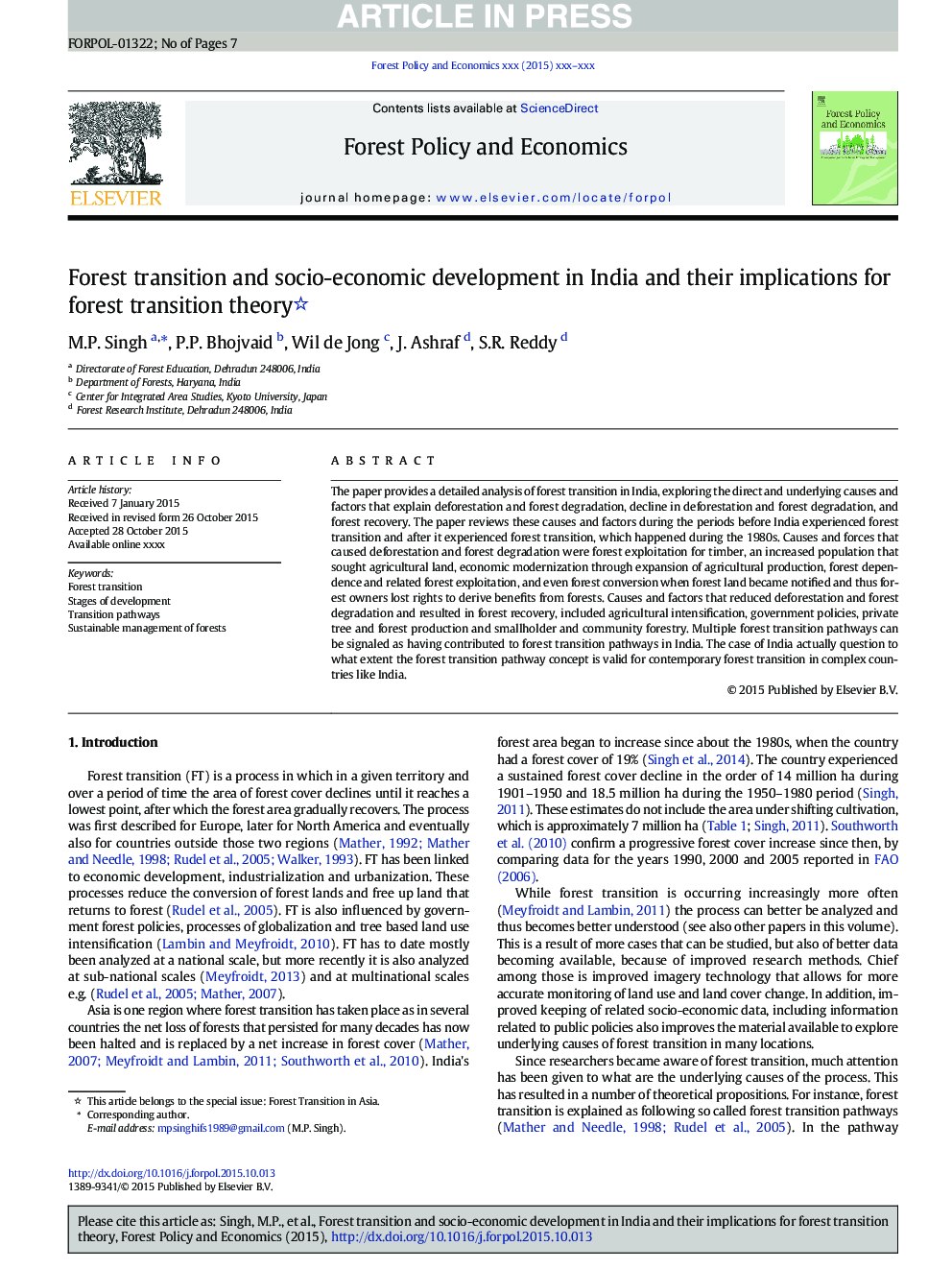| کد مقاله | کد نشریه | سال انتشار | مقاله انگلیسی | نسخه تمام متن |
|---|---|---|---|---|
| 4759803 | 1421663 | 2017 | 7 صفحه PDF | دانلود رایگان |
عنوان انگلیسی مقاله ISI
Forest transition and socio-economic development in India and their implications for forest transition theory
ترجمه فارسی عنوان
انتقال جنگل و توسعه اجتماعی و اقتصادی در هند و پیامدهای آن برای تئوری انتقال جنگل
دانلود مقاله + سفارش ترجمه
دانلود مقاله ISI انگلیسی
رایگان برای ایرانیان
کلمات کلیدی
انتقال جنگل، مراحل توسعه، مسیرهای انتقال، مدیریت پایدار جنگل ها،
موضوعات مرتبط
علوم زیستی و بیوفناوری
علوم کشاورزی و بیولوژیک
جنگلداری
چکیده انگلیسی
The paper provides a detailed analysis of forest transition in India, exploring the direct and underlying causes and factors that explain deforestation and forest degradation, decline in deforestation and forest degradation, and forest recovery. The paper reviews these causes and factors during the periods before India experienced forest transition and after it experienced forest transition, which happened during the 1980s. Causes and forces that caused deforestation and forest degradation were forest exploitation for timber, an increased population that sought agricultural land, economic modernization through expansion of agricultural production, forest dependence and related forest exploitation, and even forest conversion when forest land became notified and thus forest owners lost rights to derive benefits from forests. Causes and factors that reduced deforestation and forest degradation and resulted in forest recovery, included agricultural intensification, government policies, private tree and forest production and smallholder and community forestry. Multiple forest transition pathways can be signaled as having contributed to forest transition pathways in India. The case of India actually question to what extent the forest transition pathway concept is valid for contemporary forest transition in complex countries like India.
ناشر
Database: Elsevier - ScienceDirect (ساینس دایرکت)
Journal: Forest Policy and Economics - Volume 76, March 2017, Pages 65-71
Journal: Forest Policy and Economics - Volume 76, March 2017, Pages 65-71
نویسندگان
M.P. Singh, P.P. Bhojvaid, Wil de Jong, J. Ashraf, S.R. Reddy,
